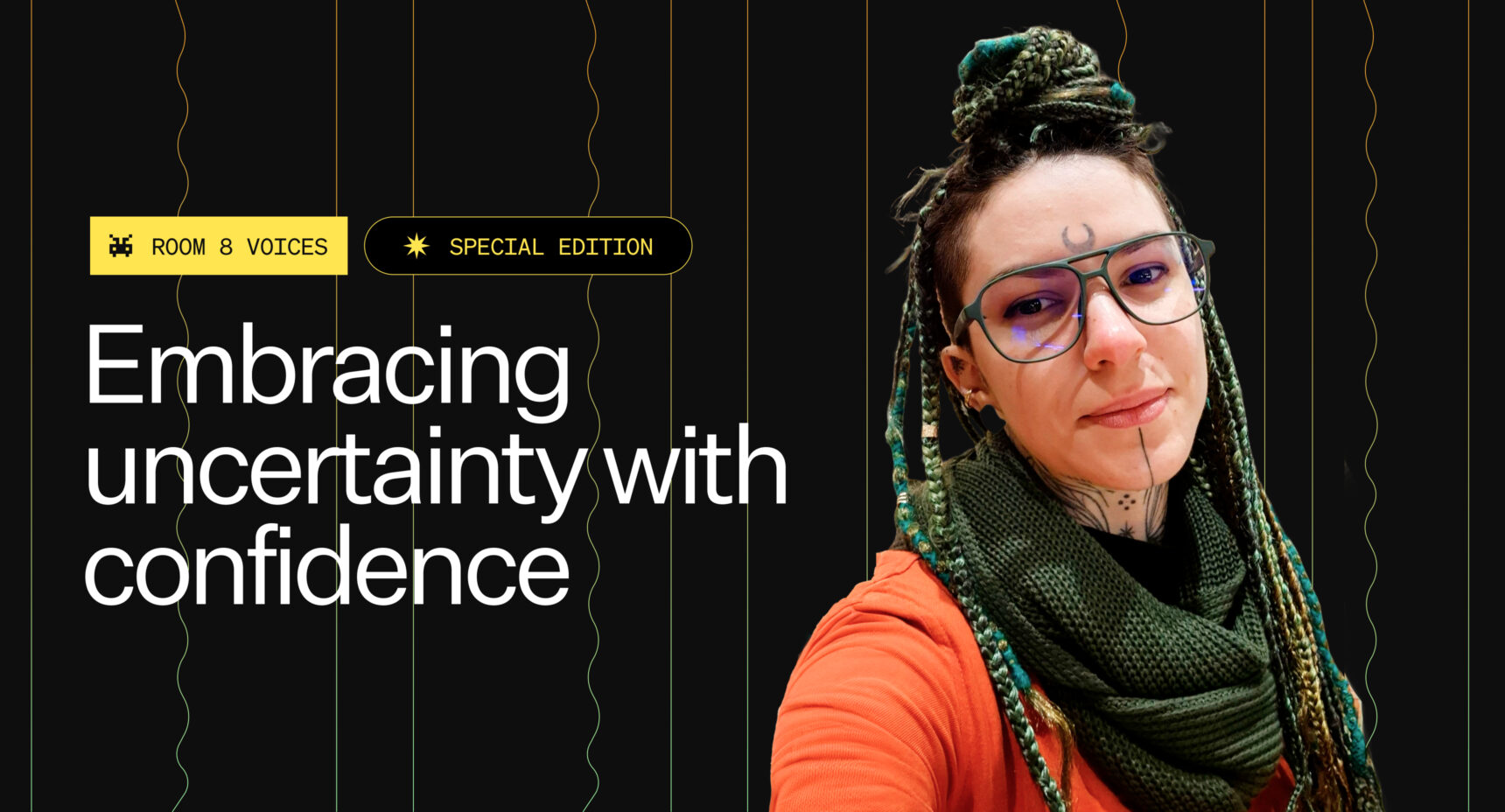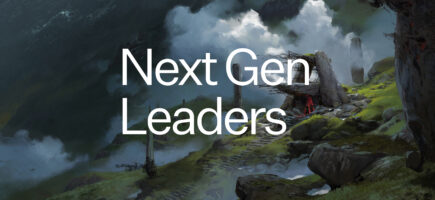Room 8 Voices: Meet Giu Cavalcanti

The most popular articles
Welcome to Room 8 Voices, a series about the people behind the projects. With Voices, we’ll strive to highlight the unique journeys and experiences of our specialists—those whose creativity and dedication powers everything we do.
All month long, we’re celebrating International Women’s Day—a day dedicated to equality, empowerment, and opportunity. At Room 8 Group, we believe in empowering women and fostering an inclusive environment where everyone can thrive. Throughout March, we’ll be publishing special editions of Voices, each spotlighting one of our female experts. We’ll ask them a series of questions about their dreams, achievements, biggest inspirations and more to celebrate the considerable female talent in our company—and in the industry as a whole. Today’s voice is Giu Cavalcanti, Business Architect at Room 8 Group!
With over 15 years of experience in the game industry, she thrives at the intersection of creativity, technology, and business strategy. As a former Partner and Head of Production at PUGA, Brazil (now part of Room 8 Group’s Art team), she led teams and managed projects for more than nine years, playing a key role in the company’s growth and its successful acquisition by Room 8 Group.
Her background in design, specializing in digital products, along with postgraduate studies in leadership and coaching and business administration, has shaped her innovative approach, strategic thinking, and dedication to empowering teams. Whether leading production, streamlining operations, or driving strategic initiatives, she’s passionate about building partner-focused solutions and fostering a collaborative, joyful work environment.
When you were a child, what did you imagine you’d be doing as an adult?
I always knew I wanted to work with creativity and innovation. I was endlessly curious about how things worked and how I could design and improve them. Computers, video games, and the internet were my favorite playgrounds, and I loved experimenting with technology to bring ideas to life.
What first sparked your interest in the gaming industry, and how did you break in?
I found games like Videopainter and Mario Paint that let me design my own characters and puzzles, and that changed everything. Suddenly, I saw endless creative possibilities. Soon after, I started tweaking textures and modifying game elements in The Sims—it was pure fun, and I knew I wanted to be part of this world. While studying design at university, I kicked off my career as a researcher in a game lab, and from that moment on, I’ve been fully immersed in the game industry.
What has been the biggest challenge you’ve overcome in your career so far?
Entrepreneurship—building and growing PUGA while navigating the uncertainties of running a company. It was a journey full of challenges but also an incredible learning experience that has shaped me as a leader and professional.
Who or what has been the biggest inspiration in your professional journey?
Simon Sinek and Brené Brown have had a profound impact on how I approach leadership. Their perspectives on purpose, vulnerability, and human connection have shaped my mindset, inspiring me to foster a work culture built on empathy, transparency, and a strong long-term vision.
What do you love most about your job and why?
I see my work as a complex puzzle, and solving it excites me. Understanding how processes, people, and technology interconnect—and strategically positioning the pieces to achieve better outcomes—feels like playing a real-time strategy game in real life.

What’s one misconception people have about working in the games industry that you’d like to clear up?
Many people think they’ll be making their dream game, but game development isn’t about personal taste—it’s about designing experiences for an audience. Developing a designer mindset means understanding the game’s market, players, and unique characteristics. The real magic happens when you shift your focus from what you want to what players need. And trust me, solving that puzzle is just as fun!
How do you stay creative and motivated, especially when facing tight deadlines?
First, I’m kind to myself—productivity isn’t a constant. Good planning upfront saves tons of time later. When deadlines get tight, I shift into strategy mode, balancing effort with impact and prioritizing the most critical deliverables. It’s like managing resources in a game—focus on the main quest when the boss battle is near!
In what ways do you see your personal and professional life evolving, and what excites you most about your future?
The future is exciting when you embrace uncertainty with curiosity and confidence. I want to keep growing in leadership, creativity, and forward-thinking skills to stay future-proof, driving innovation and fostering a more collaborative, people-centered approach.
What’s your proudest achievement or ‘wow’ moment in your current role?
For me, success isn’t about one big moment—it’s in the small, everyday ones. When someone thanks me for helping them overcome a challenge, even with a simple emoji, that’s when I feel the most fulfilled.
What is your favorite routine during the day?
The smell of fresh coffee in the morning, a well-organized workspace, and a focused start. Then, a short break playing with my cats—because somehow, in those playful moments, the best ideas magically spark!
What advice would you give to women aspiring to join the gaming industry?
There are no limits to what your mind and determination can achieve. Stay creative, stay connected, and support each other—together, we can shape the industry and reach the world.
If you could give one piece of advice to your younger self, what would it be?
Challenges will come, and you won’t always feel enough. But remember—you already have everything you need inside you to go as far as you dream. And don’t go alone. By supporting and uplifting others, you’ll find the greatest fulfillment.
In your view, how can games influence people on a deeper level?
Games are amazing simulations of reality, allowing players to step into different roles and perspectives. A great game shapes skills, sharpens decision-making, and even improves social interactions. I truly believe games are a powerful space for learning—offering real-life lessons through play.
What does success mean to you personally in this industry?
Impacting and inspiring as many people as possible—helping them unlock their potential and empowering them to lead meaningful and joyful journeys. If I can contribute to someone’s growth and creativity, I know I’m on the right path.
Is there a skill or passion outside of work that you’ve found unexpectedly useful in your role?
Empathy. It’s a game-changer for connecting people, technology, and processes. Understanding others’ perspectives helps solve real challenges, and in a work environment, empathy fosters collaboration and meaningful connections.
What is your vision for the future of women in gaming, and how do you see the industry transforming to reach it?
I envision a future where diversity, equity, and inclusion are the core of every industry—to ensure that people from all backgrounds, including underrepresented groups, can be part of the game industry. Fostering DEI also helps ensure that players feel seen and included. The more diversity and inclusion we bring into game development, the more it will naturally be reflected in the games and the experiences players have.
To achieve this, the industry must continue ensuring equal opportunities, fostering mentorship, and creating safe spaces where everyone can thrive and truly feel like they belong.
If you want to become part of the Room 8 Group team, explore opportunities here.




